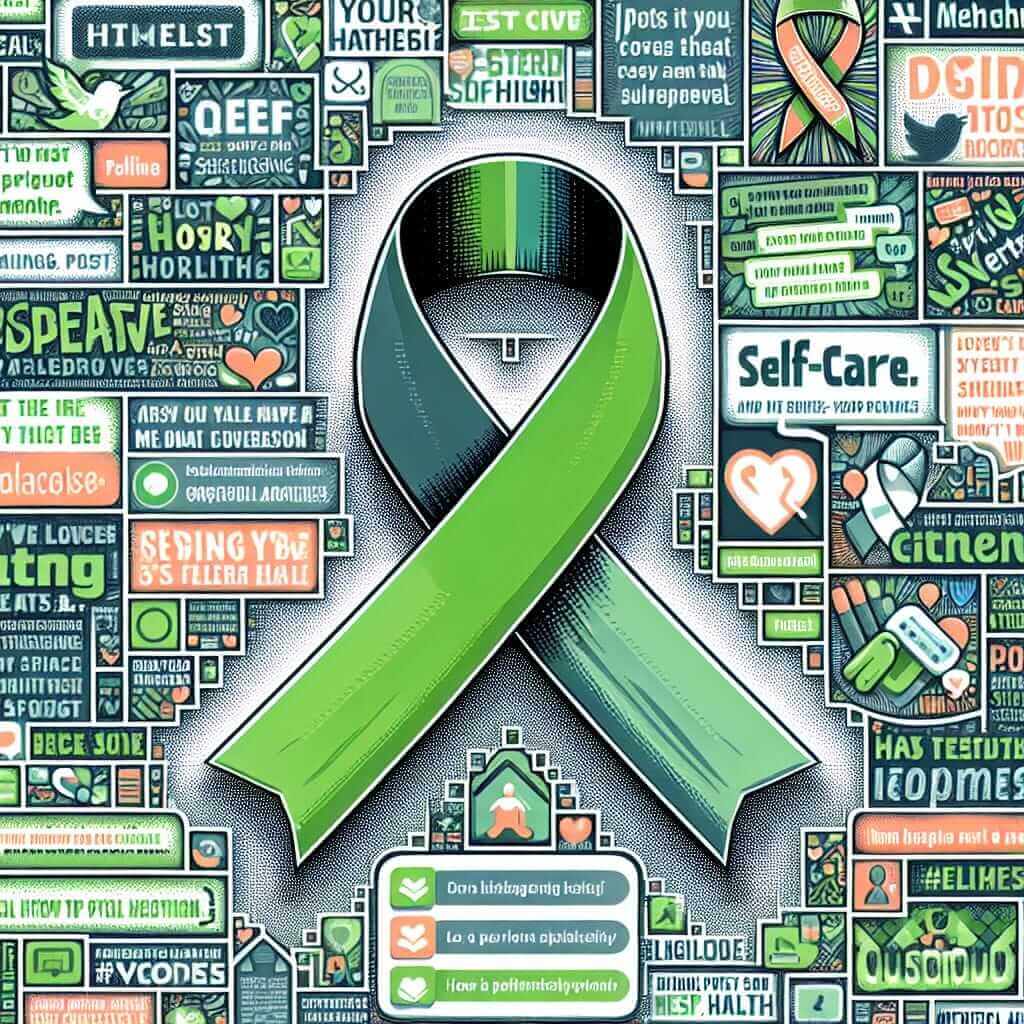The topic of “The influence of social media on mental health awareness” has surfaced frequently in recent IELTS Writing Task 2 exams. As social media continues to play a crucial role in our daily lives, its effects on mental health have become a subject of intense discussion. This article will discuss this topic, generate potential essay prompts, and provide a detailed sample essay.
Potential Essay Prompts
-
The influence of social media on mental health awareness:
- “In modern society, social media plays a significant role in raising awareness about mental health issues. To what extent do you agree or disagree with this statement?”
-
Social media and mental health:
- “Some people believe that the presence of social media has led to greater mental health awareness, while others argue that it has increased mental health problems. Discuss both views and give your opinion.”
-
The impact of social media on mental health campaigns:
- “Examine the impact of social media in promoting mental health campaigns and awareness. What are the benefits and drawbacks?”
Choosing a Prompt for the Sample Essay
For this sample essay, we will analyze and answer the first prompt:
“In modern society, social media plays a significant role in raising awareness about mental health issues. To what extent do you agree or disagree with this statement?”
Analyzing the Prompt
This prompt requires the candidate to form an opinion on whether social media significantly contributes to raising mental health awareness. It implies a full or partial agreement or disagreement and necessitates examples and evidence to support the stance.
Sample Essay
In today’s modern society, the influence of social media extends beyond social interaction and into important realms such as mental health awareness. Many argue that platforms like Facebook, Instagram, and Twitter contribute significantly to spreading knowledge and understanding about mental health issues. I agree with this notion to a large extent, as social media has proven to be a powerful tool for both disseminating information and reducing stigma surrounding mental health.
Firstly, social media platforms facilitate the rapid spread of information. Mental health organizations and influencers utilize these platforms to share crucial information, educational content, and personal stories that resonate with a wide audience. Campaigns like #BellLetsTalk and #MentalHealthAwarenessMonth leverage social media’s reach to disseminate information about mental illnesses and coping strategies, leading to greater public awareness. For example, the #BellLetsTalk campaign has generated millions of tweets and substantial donations for mental health initiatives, highlighting the transformative power of social media.

Secondly, social media fosters a sense of community and support among users. Online groups and forums provide a safe space for individuals to share their experiences, seek advice, and offer encouragement. This virtual support network plays a pivotal role in normalizing conversations about mental health and reducing the stigma attached to seeking help. The accessibility of these platforms means that support is available to anyone with an internet connection, breaking down barriers associated with traditional mental health support systems.
However, it is essential to acknowledge the potential drawbacks of social media in this context. The spread of misinformation and harmful content can exacerbate mental health problems. Instances of cyberbullying, unrealistic portrayals of life, and constant exposure to distressing news can have detrimental effects on an individual’s mental well-being. Therefore, while social media is a potent tool for raising awareness, it is also crucial for users to navigate these platforms with caution and critical thinking.
In conclusion, social media has significantly contributed to raising awareness about mental health issues through information dissemination and community support. Despite the challenges it presents, its overall impact on mental health awareness is predominantly positive. Individuals and organizations must continue to harness social media’s potential while mitigating its adverse effects to ensure a balanced approach to mental health advocacy.
Word count: 339
Tips for Writing on This Topic
- Clarity and Structure: Always plan your essay before writing. Use clear paragraphs and ensure each one has a main point supported by examples.
- Balanced View: While it’s essential to form an opinion, also acknowledge the opposite viewpoint and address it respectfully.
- Evidence and Examples: Strengthen your argument with specific examples and factual evidence.
Important Vocabulary
- Disseminate (v) [dɪˈsɛmɪˌneɪt]: Spread (something, especially information) widely.
- Stigma (n) [ˈstɪɡmə]: A mark of disgrace associated with a particular circumstance, quality, or person.
- Coping Strategies (n) [ˈkoʊpɪŋ ˈstrætədʒiz]: Techniques that help an individual manage stressful situations.
- Cyberbullying (n) [ˈsaɪbərˌbʊliɪŋ]: The use of electronic communication to bully a person, typically by sending messages of an intimidating or threatening nature.
- Advocacy (n) [ˈædvəkəsi]: Public support for or recommendation of a particular cause or policy.
Conclusion
The influence of social media on mental health awareness is a pertinent topic for IELTS Writing Task 2. It is essential to build a well-structured and balanced argument supported by concrete examples and evidence. To improve your writing skills, consider practicing with other related prompts and expanding your vocabulary on the subject. Keep in mind that the goal is to communicate your ideas clearly and effectively, reflecting the high standards of an IELTS Band 8 essay.
For further reading on related subjects, you might be interested in the topics such as The importance of mental health in public policy and The impact of social media on mental health.